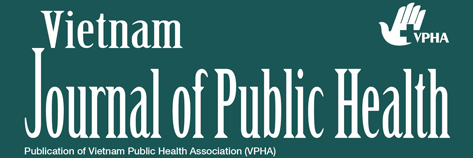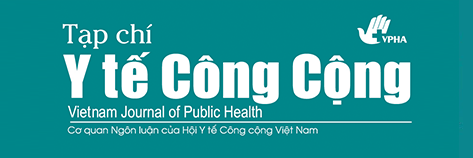Tập quán chăm sóc sau sinh của phụ nữ và các yếu tố văn hóa- xã hội liên quan tại huyện Ân Thi, Hưng Yên (The traditional practices of post-natal care among postpartum mother and related socio-cultural factors in An Thi district, Hung Yen province)
Tóm tắt
Đây là một nghiên cứu dân tộc học dùng phương pháp phỏng vấn sâu, phỏng vấn không chính thức và quan sát có tham gia 20 bà mẹ trong thời kì sau sinh, 6 người thân và 3 cán bộ y tế nhằm tìm hiểu các tập quán chăm sóc sau sinh cho bà mẹ cũng như các yếu tố văn hóa- xã hội ảnh hưởng đến các tập quán đó tại huyện Ân Thi, Hưng Yên. Các tập quán về chăm sóc sau sinh còn tồn tại khá phổ biến trong cộng đồng nông thôn. Những tập quán này chịu ảnh hưởng rõ rệt của các yếu tố văn hóa- xã hội. Các niềm tin, tập quán và những người phụ nữ trong gia đình đóng vai trò quan trọng đối với các hành vi kể trên. Khuyến nghị bao gồm thay đổi cách nhìn của các cán bộ y tế về văn hóa của bà mẹ chăm sóc sau sinh, quan tâm đến yếu tố văn hóa- xã hội trong chăm sóc sức khỏe cũng như khả năng cung cấp thông tin, giáo dục cho phụ nữ về vai trò của chăm sóc sau sinh kết hợp các hình thức hiện đại và cổ truyền.
English abstract
This is an ethnography research using in-depth interviews, informal interviews and participated observation approaches to explore the traditional practices of post-natal care among 20 postpartum mothers and to analyze how socio - cultural factors influencing these practices in An Thi district, HungYen province. It is found that traditional postpartum practices are still dominant in contemporary Vietnamese cultures. These practices are influenced by cultural and social factors. Local beliefs, customs, and the lay referral significant female relatives play key roles in recommending these behaviors. Recommendations include changing the views of health professionals toward clients' cultures, considering how biomedicine can complement traditional practices, providing information, and educating women about the benefits of contemporary postpartum care and helping them to integrate their beliefs and modern ways of care.
Từ khóa
Toàn văn:
PDF (English)##submission.citations##
WHO. 1998. Report from WHO consultation on the needs of women and their newborns during postpartum period. Reported by WHO, Geneva.
Helman, C. Culture, health and illness. 2001. 4th edition. Butter Worth Heineman published. P.156-169.
Đ.T. Lợi. 1996. Những cây thuốc và vị thuốc Việt Nam. Nhà xuất bản Y học (tái bản lần thứ 5).
Holroyd E, Katie F. K L., Lam S C, Sin W.H. "Doing a month": an exploration of postpartum practices among Chinese women. Health care for women international, Vol. 18 issue 3, May/June 1997, p301-314. 5. Laderman C.Wives and midwives: Childbirth and nutrition in rural Malaysia. 1983. University of California press, Berkeley.
Kaewsarn P., Moyle W., Creedy D. 2.2003 Traditional practices among Thai women. Journal of advanced nursing, Vol. 41, issue 4, p358.
Whittaker, A.Birthing. 1997 The postpartum and development: ideology and practice in northeast Thailand. The Australian National University Press, 1997.
Chu C. M. 1983 Reproductive health beliefs and practices of Chinese and Australian women. Taipei: Women's research program population studies center, National Taiwan University.



